ALLIED AVIATION COMPANY HISTORY

Allied™ fueling and airport services span over 60 years of experience in maintaining and operating complex, integrated airport fueling systems serving domestic and international air carriers.

Allied has provided fuel facility maintenance and operation services at major airports throughout North America and has acted as project manager and consultant for fuel facility projects across the United States, Latin America, Canada and Europe.
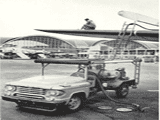 From
its first fueling contract in 1951 at Washington National Airport (DCA) in
the United States to its present status as one of the industry leaders in
commercial aviation fueling, Allied has maintained the same high standards
of excellence in quality, efficiency and safety.
From
its first fueling contract in 1951 at Washington National Airport (DCA) in
the United States to its present status as one of the industry leaders in
commercial aviation fueling, Allied has maintained the same high standards
of excellence in quality, efficiency and safety.
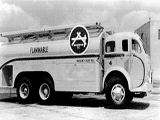 In
1953, Allied was selected as the project manager for the design, financing,
construction, maintenance and operation of the first hydrant system in the
United States at the Greater Southwest Airport (Amon Carter Field) in Fort
Worth, Texas. During the same year, the company also began facility and
into-plane fuel service at New York’s Idlewilde International Airport (now
known as JFK).
In
1953, Allied was selected as the project manager for the design, financing,
construction, maintenance and operation of the first hydrant system in the
United States at the Greater Southwest Airport (Amon Carter Field) in Fort
Worth, Texas. During the same year, the company also began facility and
into-plane fuel service at New York’s Idlewilde International Airport (now
known as JFK).
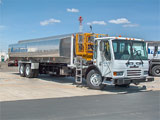 Today,
Allied remains a leader in the aviation fueling industry with the same
dedication to the fundamentals of quality service that were introduced to
the industry over 55 years ago. Allied operates some of the largest fuel
receipt and storage airport facilities in the world, including those at J.
F. K International Airport, Dallas/Fort Worth International Airport, and the
Lester Pearson International Airport in Toronto. In addition we operate at
smaller airports such as Sacramento, and San Antonio. At
all of these airports, we have been intricately involved with the
construction of these fuel systems.
Today,
Allied remains a leader in the aviation fueling industry with the same
dedication to the fundamentals of quality service that were introduced to
the industry over 55 years ago. Allied operates some of the largest fuel
receipt and storage airport facilities in the world, including those at J.
F. K International Airport, Dallas/Fort Worth International Airport, and the
Lester Pearson International Airport in Toronto. In addition we operate at
smaller airports such as Sacramento, and San Antonio. At
all of these airports, we have been intricately involved with the
construction of these fuel systems.
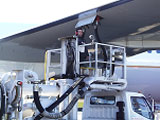 Allied
handles close to six (6) billion gallons of Jet fuel annually at twenty-five (25) airports in North, Central, and South America. Allied Aviation
understands and is fully capable of maintaining and operating complex,
integrated Airport Fueling Systems.
Allied
handles close to six (6) billion gallons of Jet fuel annually at twenty-five (25) airports in North, Central, and South America. Allied Aviation
understands and is fully capable of maintaining and operating complex,
integrated Airport Fueling Systems.
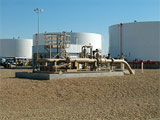 Allied
has expertise in effectively managing large commingled fuel storage
facilities for both its users and suppliers. The company maintains staff
that is highly trained and proficient in the procedures necessary to
schedule the receipt of fuel via a common pipeline to ensure continuous and
safe operation of air transportation services by its customers. The company
utilizes accounting and retention standards for all facility documentation
and fuel inventory records from the start at the pipeline or tank truck
receipt point and follows through in to the storage facilities and finally
into the aircraft in accordance with up-to-date industry practice and in
accordance with the guidelines promulgated by our customers.
Allied
has expertise in effectively managing large commingled fuel storage
facilities for both its users and suppliers. The company maintains staff
that is highly trained and proficient in the procedures necessary to
schedule the receipt of fuel via a common pipeline to ensure continuous and
safe operation of air transportation services by its customers. The company
utilizes accounting and retention standards for all facility documentation
and fuel inventory records from the start at the pipeline or tank truck
receipt point and follows through in to the storage facilities and finally
into the aircraft in accordance with up-to-date industry practice and in
accordance with the guidelines promulgated by our customers.





